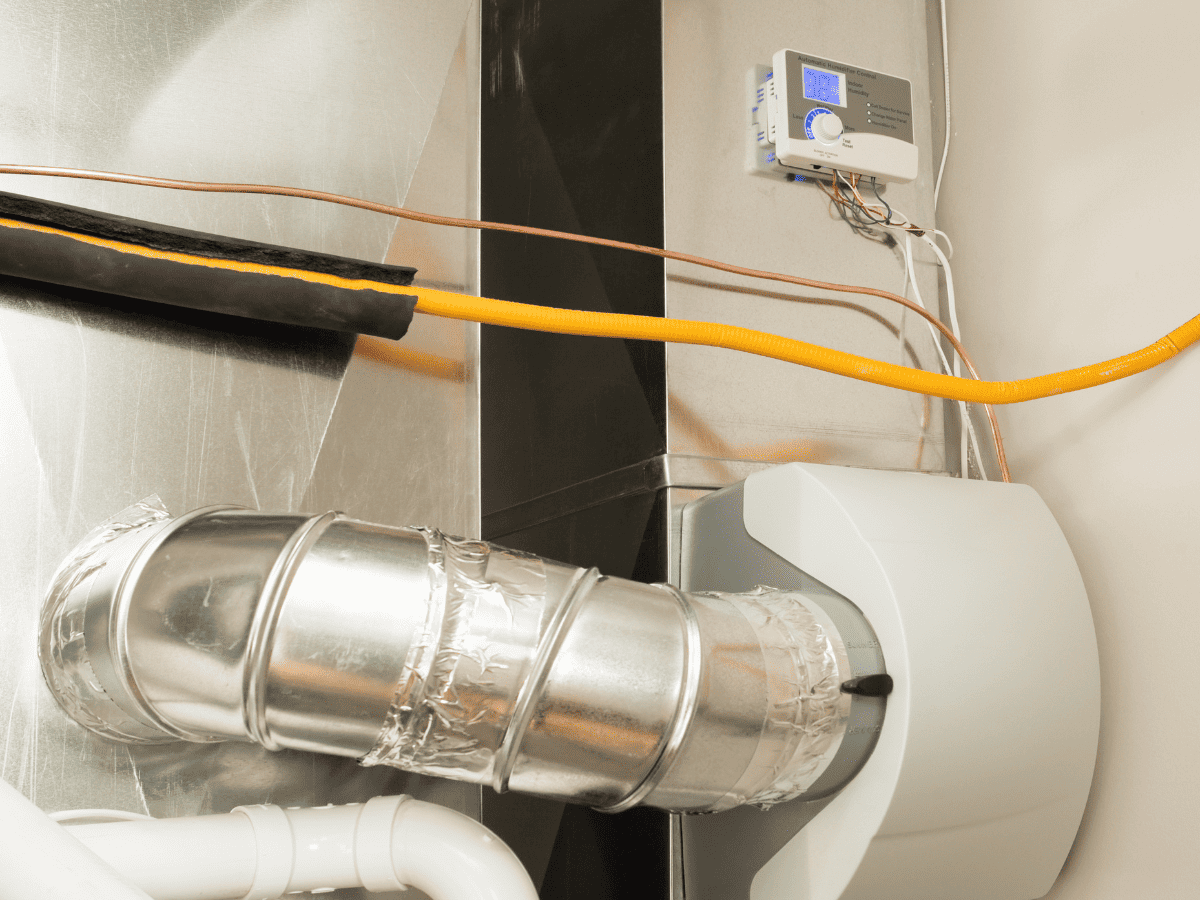As seasons shift and the weather warms up, many homeowners wonder if they still need a humidifier during the warmer season.
With all the outdoor activity, it’s natural to feel or notice a lack of humidity, prompting the question of whether you need a humidifier in the summer. But while humidifiers are frequently thought of as a way to combat the dry winter air, their advantages go far beyond the chilly months.
Humidity, just like the temperature itself, can change and drop at the most unexpected times. To explain more about using a humidifier during the summer, we’ve compiled this guide to answer a few questions. We’ve also included a few signs that you need one, even if the temperature’s high and your home is feeling hot.
If you need more information or want to install a unique home humidifier, contact us at Hurliman Heating & Air Conditioning today!
Humidity in the Summer
Many people often consider humidity inconvenient and uncomfortable, causing hair to puff or get frizzy while making the weather incredibly suffocating during the summer. But when you’re finding ways to cool off on a hot day or making the most of it, you tend to forget that humidity is why the air isn’t uncomfortably dry.
During the summer months, the air is usually more humid due to the amount of water that tends to evaporate faster. That same moisture, in excess, can end up causing problems. Too much humidity can cause discomfort, frizz, and mold growth.
On the other hand, many people typically find out that during the winter, low humidity levels can result in dryness, itchiness, and a greater chance of respiratory issues. In these cases, it’s essential to maintain a good level of humidity to keep a comfortable and healthy home.
Signs You Might Need a Humidifier in Summers
When creating a comfortable home environment, summer poses unique challenges.
Recognizing signs suggesting you might need a humidifier as the temperature rises and your air conditioner starts working overtime becomes increasingly important. During the summer, maintaining ideal humidity levels is essential for your comfort and overall health.
If you’re wondering whether you need a humidifier during the summer, here are some key signs.
A Sudden Increase in Allergies
Pollen and dust are two of the most common allergens everywhere during the summer and can cause allergy symptoms. Low humidity, however, can worsen these symptoms and increase your sensitivity to allergic reactions.
To relieve sneezing, congestion, and other allergy-related symptoms, a humidifier can help. The system keeps the air moist and lessens the impact of allergens, giving them fewer surfaces to stick on.
Skin Irritation and Dryness
Dry and irritated skin can result from air that has lost moisture due to high temperatures and air conditioning. With no (or little) moisture in the air, it pulls it away from your home’s occupants.
Using a humidifier in summers can help restore moisture to your skin and ease discomfort, especially if you often reach for moisturizers or experience excessive itching and flaking.
Dry Eyes and Itchy Nose
Though it’s often needed due to the hot weather, air conditioning can cause dry, itchy eyes and nasal passages. This usually causes discomfort, itchiness, and even trouble breathing in some people.
By introducing moisture to the air, a humidifier can help reduce the effects of dryness on your eyes, throat, and sinuses.
Other Benefits of a Humidifier in Summers
Of course, there are many more benefits to using a humidifier that go even further than you and your family’s health. Humidity (or a lack thereof) can affect your home and any plants you might have. Though not as drastic, that little moisture can improve your quality of life.
Here are some other benefits of using a humidifier during the summer.
Protects Wood Furniture and Flooring
Like your skin, low humidity can cause wooden flooring, furniture, and even your walls to dry and begin to crack. This damage is often harder to fix and can be costly to replace, depending on what broke and where. A humidifier’s aid can maintain humidity levels and protect your wooden property from expensive damage.
Strengthens Plant Health
Much like people, your houseplants flourish in conditions with the proper humidity. Plants can lose water more quickly in dry air, resulting in wilting leaves and an overall decline in plant health. A humidifier gives your plants the moisture they require to stay vibrant and healthy, even outside of watering them.
What to Consider Before Turning on Your Humidifier
The answer to the question “Can you use a humidifier in the summer?” is undoubtedly yes, but there are a few things to consider first.
One is to monitor the humidity level in your home using a humidity gauge, as this can help you determine how long to run your humidifier. The ideal range for the humidity inside your home is between 30 and 50%, but it can be changed to suit your family’s needs and prevent issues.
It’s important to maintain this balance and avoid creating areas with high humidity to prevent mold and mildew from growing.
Humidifier Use Will Vary From Home to Home
So there you have it—the answer to the question “Do you need a humidifier in the summer?”.
Considering the potential benefits of using a humidifier during the summer months can contribute to a more comfortable and healthier indoor environment. By adding moisture to the air, a humidifier can boost respiratory health, ease allergy symptoms, reduce static electricity, and so much more.
It’s essential to assess your specific needs and the humidity levels in your home before deciding.
If you want to learn more about how a humidifier can be helpful for your home or want one installed, contact Hurliman!





